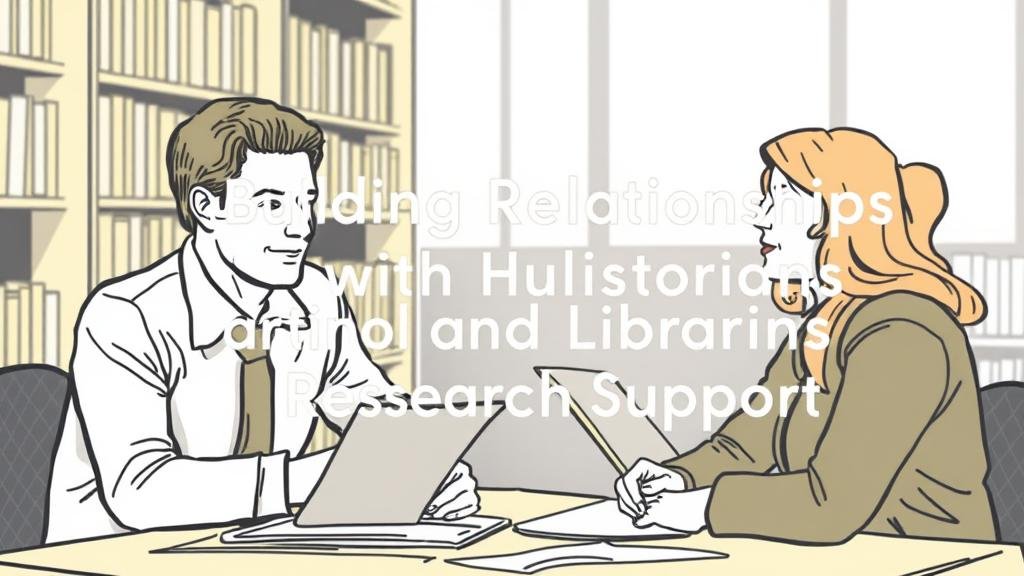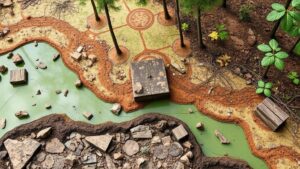Building Relationships with Historians and Librarians for Research Support
Building Relationships with Historians and Librarians for Research Support
In the realm of academia, conducting comprehensive and effective research is paramount. Building strong relationships with historians and librarians can significantly enhance the research process. This article will outline the importance of these relationships, strategies for cultivating them, and real-world applications that demonstrate their value.
The Importance of Historians in Research
Historians are vital to understanding past events, social movements, and cultural transformations. provide context and a depth of analysis that extends beyond the mere collection of dates and facts. Partnering with historians allows researchers to:
- Access specialized knowledge in various historical fields.
- Gain insights into methodological approaches tailored to historical research.
- Obtain guidance on sourcing and interpreting primary and secondary materials.
For example, a researcher investigating the social dynamics of the Civil Rights Movement may benefit from the expertise of a historian specializing in this era. Collaboration can lead to a more nuanced understanding of the socio-political climate of 1960s America, which can further enrich the research findings.
The Role of Librarians in Research
Librarians offer invaluable support by providing access to a vast array of resources and managing information retrieval systems. r expertise allows researchers to:
- Use advanced search strategies to navigate complex databases.
- Access archival materials, rare books, and digital collections.
- Receive instruction on citation management and data organization.
According to the American Library Association, 94% of academic librarians believe that they play a key role in student success (American Library Association, 2020). For example, during a research project on the history of womens suffrage, a librarian can assist in locating primary sources, such as newspapers and pamphlets from the suffrage movement, thus making the research more robust.
Strategies for Building Relationships
Engagement Opportunities
Establishing relationships with historians and librarians begins with engagement. Researchers should actively seek opportunities to interact and collaborate. Some strategies can include:
- Attending workshops and lectures hosted by historians and librarians.
- Participating in university-sponsored research fairs and networking events.
- Joining academic organizations and professional groups related to specific historical disciplines.
Engagement not only fosters acquaintance but enhances understanding of the unique skills and resources each party brings to the research table.
Utilizing Social Media and Online Platforms
In the digital age, social media and online academic platforms present excellent avenues for establishing connections. Platforms like ResearchGate and Academia.edu allow researchers to:
- Share research findings and seek feedback from historians and librarians.
- Join discussions in online forums that focus on historical research.
- Follow historians and librarians to stay updated on their work and projects.
For example, a researcher on World War II could join online discussions with historians specializing in global conflicts, thereby enhancing their perspective and incorporating diverse viewpoints into their work.
Real-world Applications and Case Studies
Successful Collaborations
Case studies highlighting successful collaborations between researchers, historians, and librarians can illustrate the effectiveness of these relationships. One notable example is the partnership between the Library of Congress and various historians to digitize and curate collections on American history. This collaboration has resulted in:
- Increased accessibility to historical materials for researchers worldwide.
- The development of curated resources, such as the “American Memory†project, which offers a trove of primary sources.
Such projects not only benefit researchers but also contribute to the wider academic community by preserving and promoting knowledge.
Enhancing Research Quality
Research that incorporates the expertise of historians and librarians generally exhibits higher quality. A study conducted by the National Endowment for the Humanities in 2019 found that projects which engaged library personnel achieved a 30% higher success rate in grant approvals due to their thoroughness and rigor (National Endowment for the Humanities, 2019). This outcome underscores the importance of collaborative research approaches.
Actionable Takeaways
To maximize the effectiveness of research endeavors, scholars and students should:
- Proactively seek to build relationships with historians and librarians through engagement and networking.
- Use digital platforms to expand their professional network and foster collaboration.
- Recognize the value of interdisciplinary approaches to research that incorporate diverse expertise.
By implementing these strategies, researchers can significantly enhance their scholarly work and contribute to the broader understanding of historical contexts.



